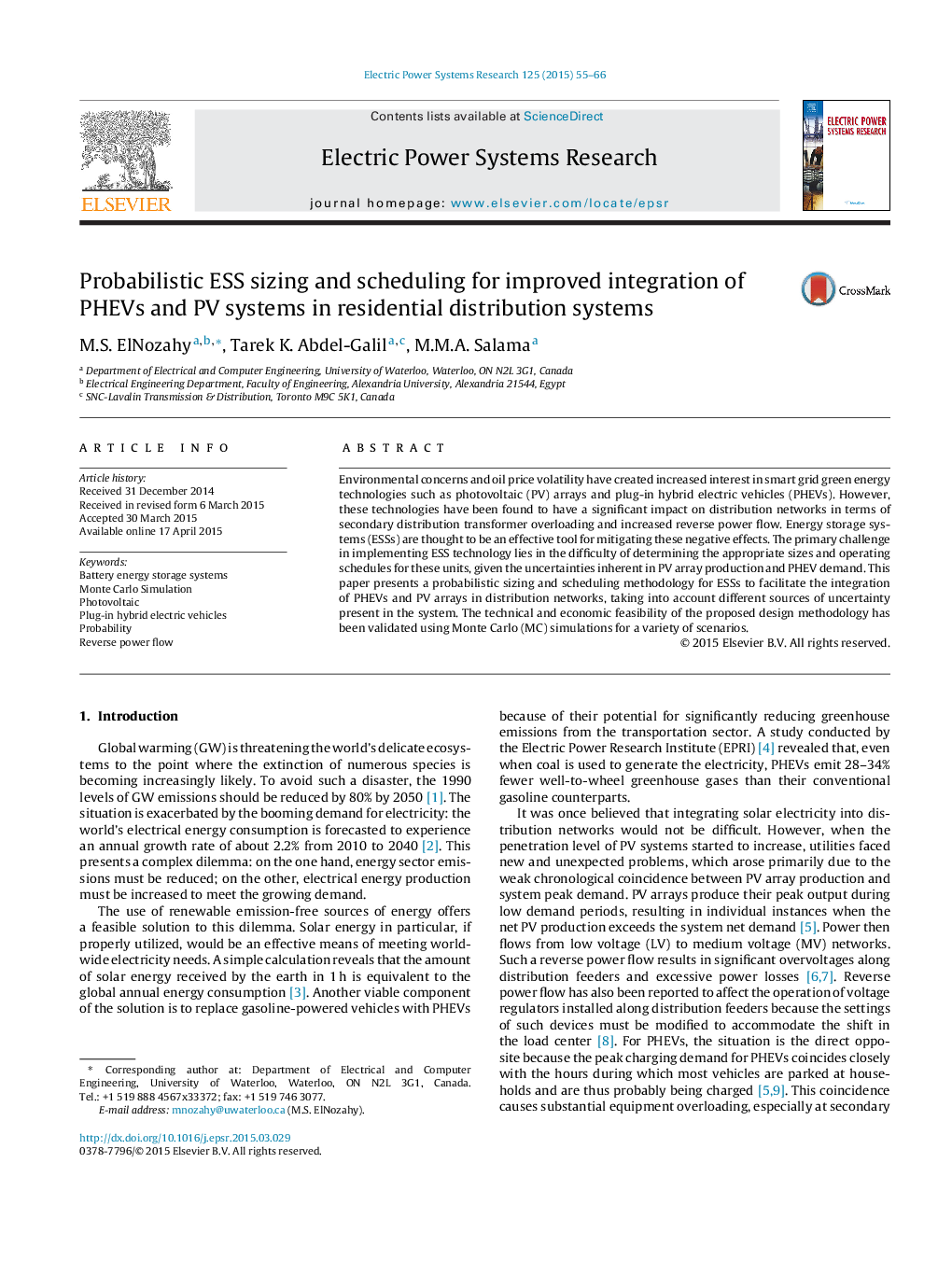| Article ID | Journal | Published Year | Pages | File Type |
|---|---|---|---|---|
| 704478 | Electric Power Systems Research | 2015 | 12 Pages |
•PV arrays and PHEVs have a significant impact on distribution networks.•ESSs are considered an effective tool for mitigating these negative effects.•It is difficult to determine the appropriate sizes and operating schedules for ESSs.•A probabilistic sizing and scheduling methodology for ESSs is proposed.•The feasibility of the proposed methodology is validated using MC simulations.
Environmental concerns and oil price volatility have created increased interest in smart grid green energy technologies such as photovoltaic (PV) arrays and plug-in hybrid electric vehicles (PHEVs). However, these technologies have been found to have a significant impact on distribution networks in terms of secondary distribution transformer overloading and increased reverse power flow. Energy storage systems (ESSs) are thought to be an effective tool for mitigating these negative effects. The primary challenge in implementing ESS technology lies in the difficulty of determining the appropriate sizes and operating schedules for these units, given the uncertainties inherent in PV array production and PHEV demand. This paper presents a probabilistic sizing and scheduling methodology for ESSs to facilitate the integration of PHEVs and PV arrays in distribution networks, taking into account different sources of uncertainty present in the system. The technical and economic feasibility of the proposed design methodology has been validated using Monte Carlo (MC) simulations for a variety of scenarios.
